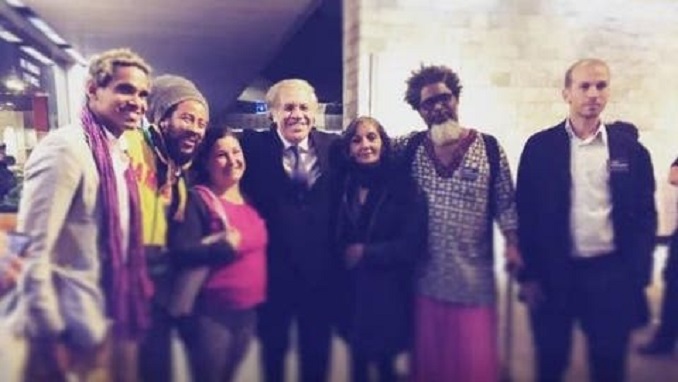Cuban Foreign Minister Bruno Rodriguez today rejected U.S. interference in his country’s internal affairs and said that instead of supporting the people, Washington is attacking them, teleSUR reports.
In his Twitter account, the Foreign Minister stated that U.S. Secretary of State Mike Pompeo is lying when he says that he supports the island’s people since his government has insisted on attacking them in every conceivable way. The United States must cease and desist from interfering in Cuba’s internal affairs, added the head of the Caribbean nation’s Ministry of Foreign Relations.
The day before, Pompeo urged the Cuban government to free Denis Solis, who was sentenced to eight months in prison for the crime of contempt for the authorities. Pompeo also referred to the so-called San Isidro Movement, a small group of dissidents currently leading a protest in Havana, with the declared purpose of demanding the authorities to release Solis and close the stores in freely convertible currency.
A publication of the newspaper Granma this Wednesday denounces that group’s links with figures involved in terrorist, subversive and violent actions against Cuba. The article points out that this fiasco is a show orchestrated by Washington and Miami and part of the subversion plans against the Caribbean nation, anchored in the soft coup strategy, applied in scenarios such as the Venezuelan guarimbas in 2014 and 2017.
Granma also points out that U.S. government officials do not hide their complicity with subversion; such is the case of Michael Kozak, acting undersecretary of the State Department’s Bureau of Western Hemisphere Affairs.
Also, Republican Senator Marco Rubio of Florida and Secretary General Luis Almagro of the Organization of American States have spoken in “support” of the movement and expressed their solidarity for the covnicted criminals and Trump supporters.
What the U.S. government seeks at all costs is to discredit the clean and exemplary record of the Revolution, the publication specifies, recalling Cuba’s recent election as a member of the UN Human Rights Council.
Granma adds that these actions are intended to justify the economic, commercial, and financial blockade maintenance seriously affecting the Cuban people and society.
At the same time, Cuba’s permanent delegate at UNESCO, Yahima Esquivel, denounced on Wednesday the US economic, commercial and financial blockade’s impact on the coutnry’s communications sector.
The US blockade constitutes the main obstacle to the development of infrastructure in this area, including telecommunications, Esquivel set out at the 32nd session of the Intergovernmental Council of the International Program for the Development of Communications (PIDC).
The Cuban ambassador affirmed that the blockade imposed by Washington for 60 years also makes it difficult for the Cuban population to access Internet and information and communication technologies.
On the virtual forum, she expressed Cuba’s commitment to the PIDC and its founding principles, a multilateral tool created by UNESCO to promote media in developing countries. In that regard, the diplomat reiterated Cuba’s support for the construction of a new world order in the sector, where communications will focus on boosting development and peace.
